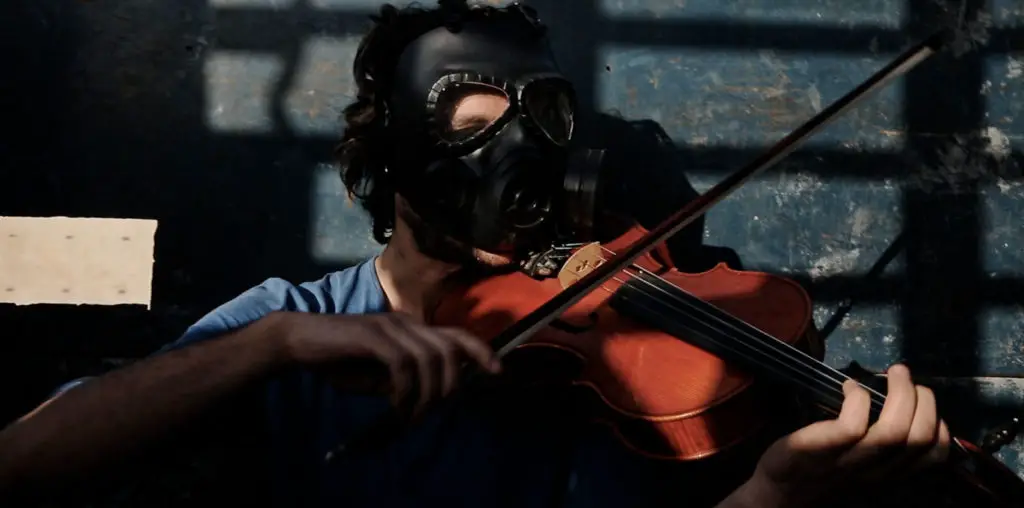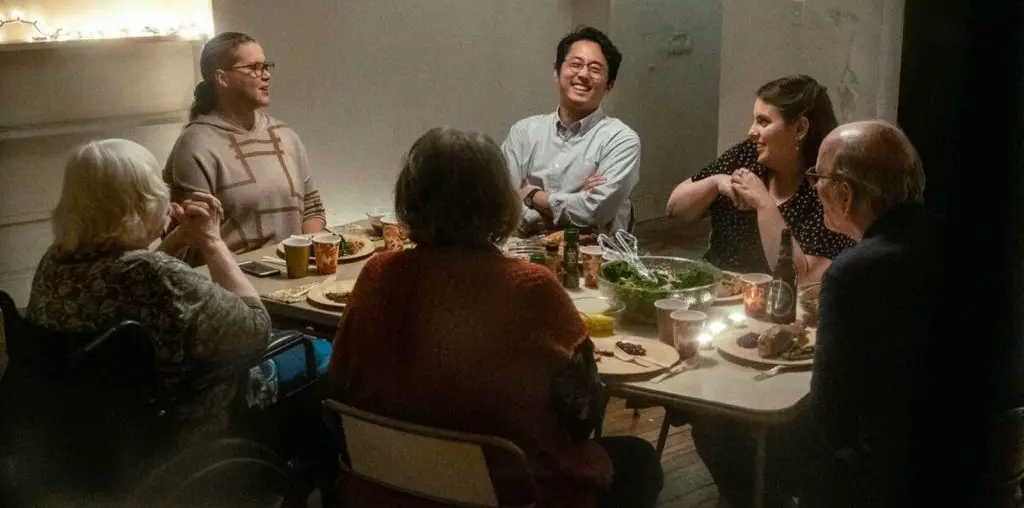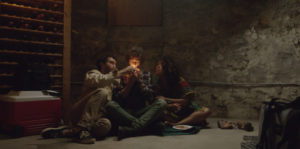
Written and directed by Michael Glover Smith, Relative can be included in a sub-genre that we will call the Family Reunion Drama. These films usually employ a holiday or some significant event in the life of one of the family members — Thanksgiving or a birthday party — to bring together numerous personalities under one roof and initiate conflict. When done well — The Celebration, Krisha, The Humans — these stories offer the viewer thoughtful plots wherein characters clash along generational, political, gender, socioeconomic, and buried family history lines. To pull this off, both the writing and acting have to be on point. This lowkey drama can be included with the aforementioned Family Reunion Dramas in terms of quality.
Benji (Cameron Scott Roberts) is graduating from Loyola with a degree in geography. He, the youngest of four siblings, still lives with his mother and father (Wendy Robie and Francis Guinan) in the suburbs of Chicago. Mom and dad plan a graduation party for young Benji.
Benji’s two older sisters, Norma (Emily Lape) and Evonne (Clare Cooney), live in Iowa and Wisconsin, respectively, with their romantic partners. They are going through their own dramas back home but feel compelled enough to travel to Chicago for Benji’s celebration. One last sibling to throw into the mix is Rod (Keith D. Gallagher). He lives in mom and dad’s basement and is a man-child who spends all day smoking pot and playing video games.
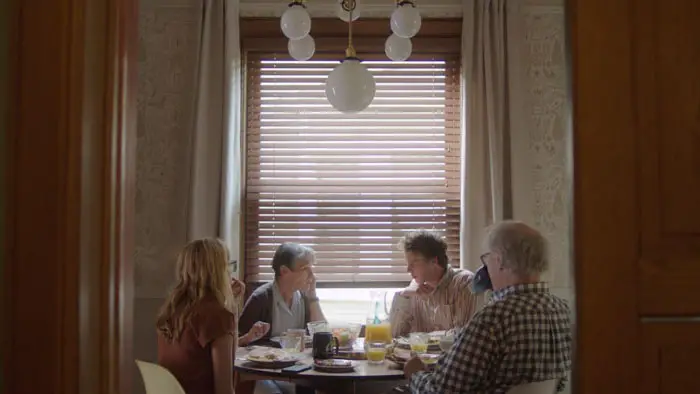
“…characters clash along generational, political, gender, socioeconomic, and buried family history lines.”
With Relative, Glover Smith crafts interesting characters that are personifications of archetypes. Benji, the articulate college graduate who already has a job lined up, clashes with Rod, who suffers from PTSD after serving in Iraq and is recovering from both heartbreak and an opioid addiction. The parents are hippies. Their father has a hard time relating to Rod, who describes himself as a Libertarian. He nags Rod to pull himself together, find a job, and move out. The sisters are as contrasting as can be. Norma lives a mainstream heterosexual life with her husband in Iowa. Evonne is in a same-sex interracial relationship. Norma’s awkward questions to her partner irk Evonne.
For this type of film to work, the performances must be above average. Happily, they indeed are here. Every actor carries their weight, and there is no weak link. Michael Glover Smith also deserves kudos for his writing. There are some minor flaws in the screenplay, such as Evonne and her romantic partner’s rocky relationship, which could have used more attention in terms of a resolution. Even still, the filmmaker creates characters that admittedly have annoying eccentricities but are still likable enough that you want to spend time with them as a viewer. He even wisely inserts Benji’s new romantic interest, Hekla (Elizabeth Stam), as an outsider who brings levity and the hope of youthful romance as counterpoints to all the heavy family drama.
Throughout Relative, I felt that Norma was the least developed. Glover Smith had a surprise in store for me. By the end, he made me realize that Norma was the lynchpin, the vehicle through which the director was trying to express the main theme of his film. Family offers us the most basic idea of community as it’s a micro-community if you will. Contemporary life fractures family life. Jobs make family members live in different states, technology atomizes people around the dinner table, and even politics creates resentments. Norma yearns to recapture this feeling of community, of family togetherness. Can that sense of community ever be attained in a location as large as Norma’s United States? Or can a sense of community only be found in places such as Hekla’s Iceland, with a population of roughly 370,000? We feel Norma’s angst. A basic need for community seems to run through all of us.
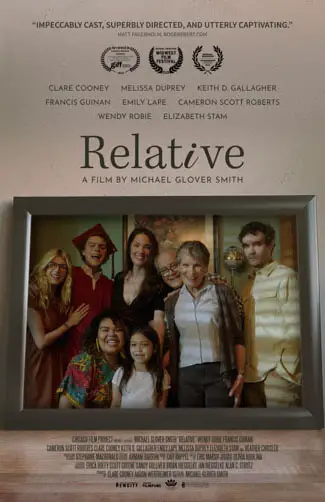
"…every actor carries their weight..."
